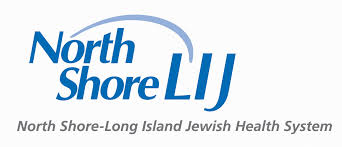The Role of HMGB-1 in Chronic Stroke
| Status: | Terminated |
|---|---|
| Conditions: | Neurology |
| Therapuetic Areas: | Neurology |
| Healthy: | No |
| Age Range: | 18 - Any |
| Updated: | 4/17/2018 |
| Start Date: | September 2012 |
| End Date: | February 2018 |
Pilot Study of the Role of HMGB-1 in Retarding Recovery in Chronic Stroke
The purpose of this study is to measure the presence of HMGB-1 and other proteins in the
blood across five time points after stroke, and to determine if their presence correlates
with rate of stroke recovery.
blood across five time points after stroke, and to determine if their presence correlates
with rate of stroke recovery.
Stroke, cerebrovascular accident, is the leading cause of brain injury and the leading cause
of permanent disability. The acute pathophysiology of stroke depends on the innate immune
response, which arises from mostly pro-inflammatory cascades. The chronic pathophysiology of
stroke is less clear as the innate inflammatory response fades and matures into an adaptive
immune response. HMGB-1 is a serum cytokine that has been found with persistent elevated
levels for weeks to months after neurological insult in preclinical experiments, and may
retard functional recovery. Elucidation of the relationship between HMGB-1 levels and the
rate of functional recovery after stroke could lead to a better understanding of the systemic
inflammatory response and more targeted therapeutic interventions.
of permanent disability. The acute pathophysiology of stroke depends on the innate immune
response, which arises from mostly pro-inflammatory cascades. The chronic pathophysiology of
stroke is less clear as the innate inflammatory response fades and matures into an adaptive
immune response. HMGB-1 is a serum cytokine that has been found with persistent elevated
levels for weeks to months after neurological insult in preclinical experiments, and may
retard functional recovery. Elucidation of the relationship between HMGB-1 levels and the
rate of functional recovery after stroke could lead to a better understanding of the systemic
inflammatory response and more targeted therapeutic interventions.
Inclusion Criteria:
- Patients admitted to the stroke service at Northshore and LIJ Medical Centers
- Patients 18 years of age or older
Exclusion Criteria:
- Patients < 18 years of age
We found this trial at
2
sites
Long Island Jewish Medical Center Serving North Shore LIJ Health System employees and their families....
Click here to add this to my saved trials
North Shore University Hospital North Shore-LIJ Health System includes 16 award-winning hospitals and nearly 400...
Click here to add this to my saved trials

